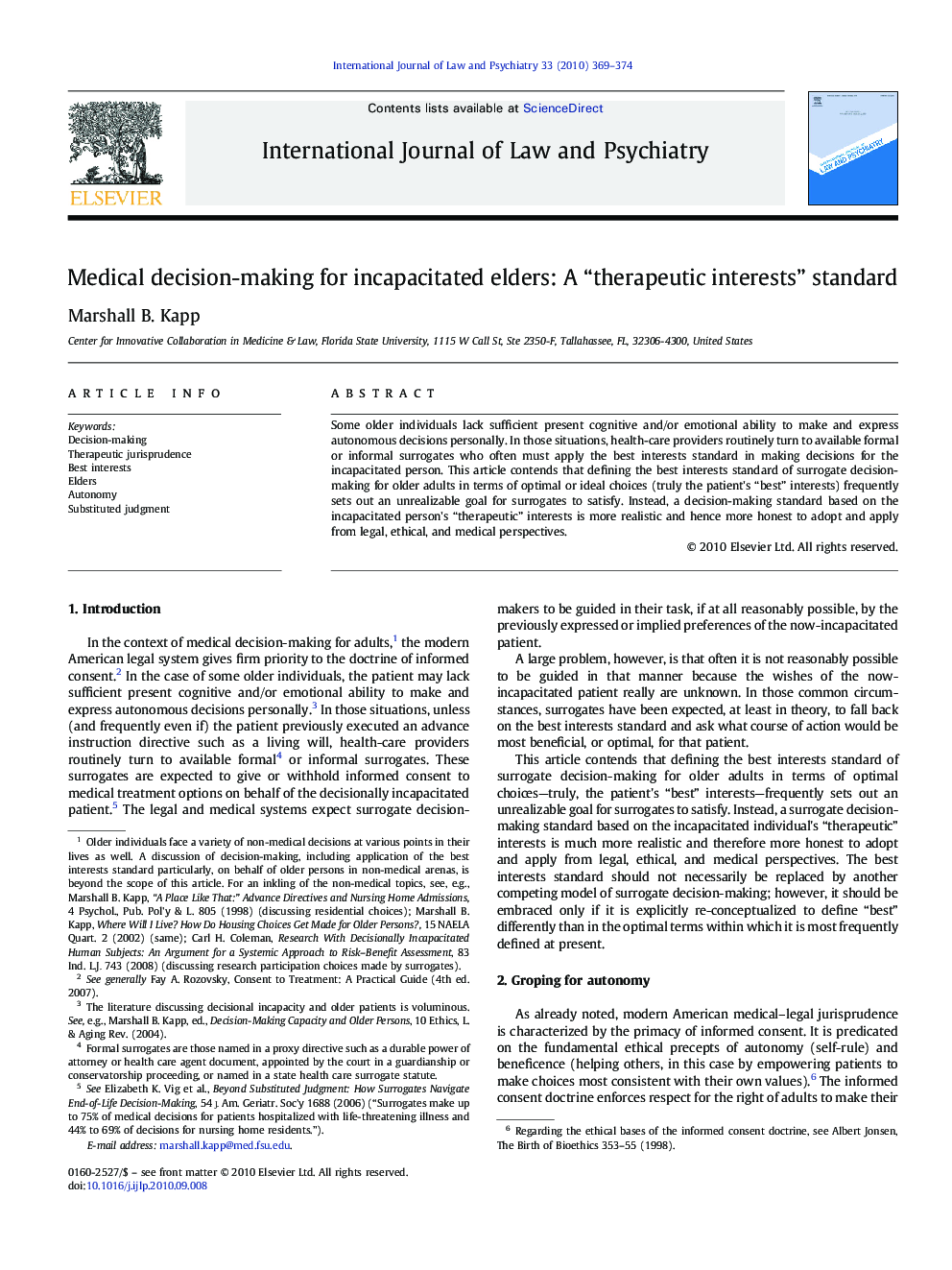| Article ID | Journal | Published Year | Pages | File Type |
|---|---|---|---|---|
| 101160 | International Journal of Law and Psychiatry | 2010 | 6 Pages |
Some older individuals lack sufficient present cognitive and/or emotional ability to make and express autonomous decisions personally. In those situations, health-care providers routinely turn to available formal or informal surrogates who often must apply the best interests standard in making decisions for the incapacitated person. This article contends that defining the best interests standard of surrogate decision-making for older adults in terms of optimal or ideal choices (truly the patient's “best” interests) frequently sets out an unrealizable goal for surrogates to satisfy. Instead, a decision-making standard based on the incapacitated person's “therapeutic” interests is more realistic and hence more honest to adopt and apply from legal, ethical, and medical perspectives.
